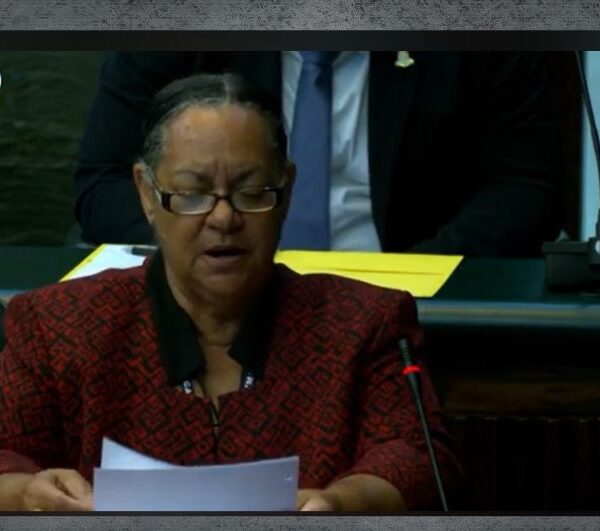
|
Getting your Trinity Audio player ready...
|
By Alric Lindsay
In the Cayman Islands Gazette published today, December 31, 2024, the Government published the National Conservation (Amendment) Bill, 2024, which, if passed in 2025, will amend the National Conservation Act, 2013. Proposed changes include the composition of the National Conservation Council, the removal of the Council’s power to appoint advisory committees, the introduction of a requirement of Cabinet’s approval before functions of the Council may be delegated to the Director of the Department of the Environment, the introduction of an appeals tribunal and the change of the management of the environmental protection from the Council to the Cabinet.
Composition of the National Conservation Council
A summary of the proposed changes to the Council are as follows:
- Currently, the Council comprises thirteen voting members specified in Schedule 2 of the National Conservation Act, 2013. This number will now drop to twelve.
Concerning who may currently cast a vote, the current Act states that the voting members are as follows:
(a) the Director or his nominee from the Department of the Environment;
(b) the Deputy Director of Research in the Department of the Environment;
(c) the Director of the Department of Agriculture or his nominee from the Department of Agriculture;
(d) the Director of Planning or his nominee from the Department of Planning;
(e) a person nominated by the National Trust and appointed by the Cabinet; and
(f) eight persons appointed by the Cabinet, at least four of whom shall have relevant scientific or technical expertise.
Under the proposed changes, the following members shall not have a right to vote —
(i) the Director or the Director’s nominee from the Department of the Environment;
(ii) the Deputy Director of Research in the Department of the Environment;
(iii) the Chief Officer of the Ministry responsible for agriculture or the nominee of the Chief Officer; and
(iv) the Chief Officer of the Ministry responsible for planning or the nominee of the Chief Officer
Proposed voting members (appointed by the Cabinet) under the restructured Council are as follows:
(i) a person appointed to be chairperson;
(ii) a person whom shall be nominated by the National Trust;and
(iii) one person from each of the following districts —
(A) West Bay;
(B) George Town;
(C) Cayman Brac and Little Cayman;
(D) Bodden Town;
(E) North Side; and
(F) East End
2. The ability of the Council to “co-opt such persons as it considers necessary to be additional members of the Council” also appears to be on the table to be removed.
3. The function of the Council in managing and making recommendations on the use of the Environmental Protection Fund is expected to be repealed. The Cabinet would be expected to manage the Environmental Protection Fund, including managing monies disbursed from the Environmental Protection Fund.
4. The Council will be unable to delegate its functions to the Director of the Department of the Environment without the Cabinet’s approval.
Advisory Committees
Currently, the Council may appoint advisory committees consisting of members of the Council, representatives of districts and persons with knowledge and experience of conservation issues to assist it in performing its powers and duties under the National Conservation Act. This power of the Council to appoint advisory committees is scheduled to be removed.
Submission of Appeals
When it comes to appeals against the decision of the Council under the National Conservation Act, this states that “A person aggrieved by a decision of the Council (a) refusing an application for a permit or a licence; (b) imposing a condition on a permit or a licence; (c) amending a permit or licence; (d) revoking or suspending a permit or a licence” may “appeal against it to the Cabinet by serving on the Cabinet notice in writing of the intention to appeal and the grounds of the appeal.”
The proposed change under the Bill will establish a Conservation Appeals Tribunal to hear appeals.
Obligation of entities to comply with the Act
Under the current Act, every “entity” shall comply with the provisions of the Act and “shall ensure that its decisions, actions and undertakings are consistent with and do not jeopardise the protection and conservation of a protected area or any protected species or its critical habitat.”
Regarding this, the current definition of entity is as follows:
“entity” means any body of the government and includes the Cabinet, any ministry, portfolio, statutory authority, government company or any other body which exercises a public function;”
The Bill proposes to change the definition of entity to the following:
“entity” means any body of the government (except the Cabinet) and includes any ministry, portfolio, statutory authority, government company or any other body which exercises a public function;”.
This proposed change appears to have the effect that the Cabinet would not have to “ensure that its decisions, actions and undertakings are consistent with and do not jeopardise the protection and conservation of a protected area or any protected species or its critical habitat.”
Environmental Impact Assessment
Under the current Act, the requirement for environmental impact assessments states as follows:
43. (1) In any consultations pursuant to section 41(3) or before granting an approval under section 41 (4), the Council may, in its discretion and within such times as it may specify, require an environmental impact assessment to be carried out of the proposed action.
This is expected to change as follows:
(1) In any consultations pursuant to section 41(3), or upon receiving any request for approval under section 41(4), the Council may, in its discretion and within such times as it may specify, require an environmental impact assessment to be carried out for the proposed action.
This appears to allow the Council to continue to require an EIA at its discretion.
Judicial Review Proceedings
Regarding judicial review proceedings, the current Act states:
44. Any person may, without prejudice to any other legal redress he might have, make an application to the court for the judicial review of any act or omission under this Law of any entity, public officer, the Council or the Director that is alleged to be in violation of any provision of this Law.
This wording is proposed to be removed and replaced with the following:
Legal proceedings
44. No steps may be taken by an entity nor by a public officer to institute civil proceedings in any court in connection with matters arising out of the discharge of their public duties or against any entity or public officer for anything done in the performance of their duties under this Act unless the approval of the Attorney General had been obtained.
This appears to require the Attorney General’s approval to initiate a judicial review concerning the Act.
What happens next?
The Bill is expected to be debated in the Parliament in 2025 before the April 2025 elections.
It is unclear whether any public consultation will occur or whether the Government will be open to any changes to the proposals.
Note to readers:
For the full details of the changes, please see below.







